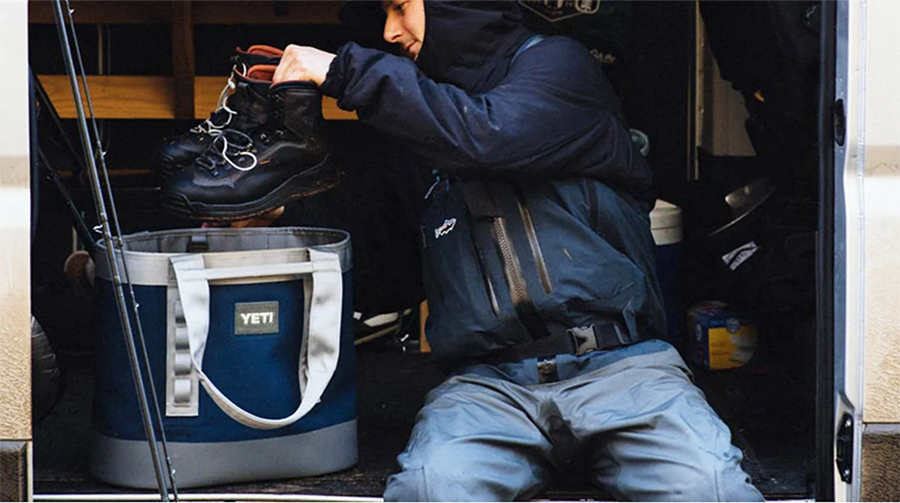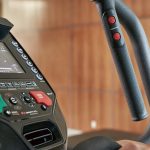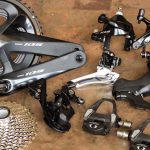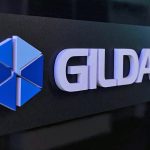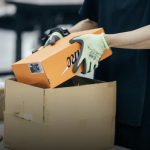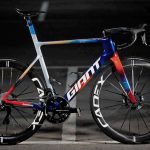Yeti Holdings Inc. reported better-than-expected fourth-quarter earnings as the thirst for outdoor pursuits amid the pandemic continued. The brand has targeted mid-teens growth for the current year and expects to catch up to inventory shortages hampering its wholesale growth by the second quarter.
On a conference call with analysts, Matt Reintjes, president and CEO, said full-year results exceeded the high end of the company’s net sales and adjusted EPS forecasts at the start of the year.
Reintjes noted that Yeti benefited from the pandemic-driven acceleration of the shift to more active lifestyles and a greater appreciation for outdoor activities and recreation, including a well-documented increase in vacations closer to home. Said Reintjes, “As a brand that lives to deliver performance, durability and versatility across all our products, we are well-positioned at the intersection of these trends.”
At the same time, the strong gains for the quarter and year came despite many purchasing opportunities becoming “curtailed or eliminated” due to the pandemic, including weekend tailgating, backyard barbecues, standing on the sidelines of sporting events “or something as simple as a hot drink on the morning commute.”
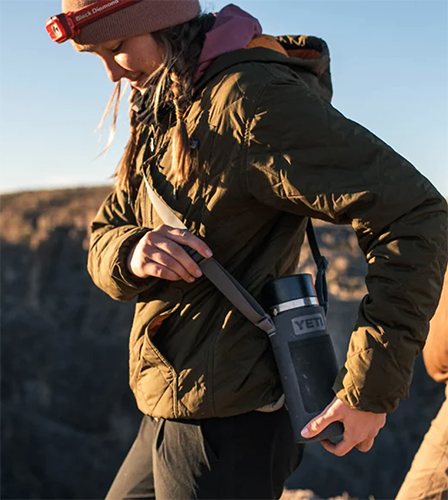
He added, “Moving forward, we expect the traction of outdoor and active pursuits to endure. At the same time, our brand is uniquely positioned as people begin to return to certain elements of work-life, social gathering and travel further afield.”
Reintjes also believes the brand benefited from its ability “to connect with customers in meaningful ways” in their homes and its focus on “even stronger” digital engagement over the course of the year that helped prioritize investments. He continued, “You will see an added focus this year in digital, brand and product storytelling, product development, data analytics, e-commerce, and our international infrastructure. We believe this focus will help Yeti build upon its leadership position in the market and ultimately capitalize on our global potential.”
Q4 Sales Jump 26 Percent
In the quarter, earnings on an adjusted basis vaulted 72.5 percent to $65.2 million, or 74 cents a share. Results were ahead of Wall Street’s consensus target of 62 cents.
Net income increased to $62.4 million, or 71 cents, against $4.7 million, or 5 cents, a year ago. The year-ago period included a one-time non-cash stock-based compensation charge related to pre-IPO performance-based awards. Yeti went public in October 2018.
Sales grew 26.2 percent to $375.8 million, above Wall Street’s consensus estimate of $353 million and on top of the 23 percent increase posted in the year-ago period.
By channel, direct-to-consumer (DTC) sales increased 46.2 percent to $217.8 million, driven by strong performance in Drinkware, Coolers & Equipment. All DTC channels – Yeti.com, Amazon Marketplace, retail, and corporate sales – posted at least 20 percent growth. DTC grew to 58 percent of sales from 50 percent in the prior-year period.
Wholesale sales increased 6.3 percent to $158.0 million, driven by the balanced growth of Drinkware and Coolers & Equipment. The growth came despite ongoing inventory constraints in the channel.
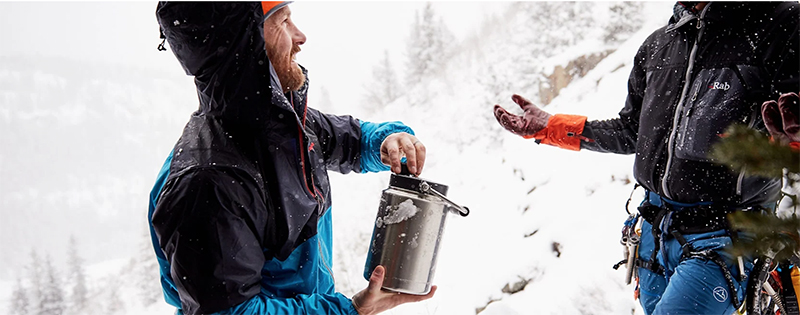
By product category, Drinkware sales increased 22.8 percent in the quarter to $235.7 million with strong demand across the portfolio. Drinkware continued to see momentum from recent introductions, led by the expanded and improved Colster Can Insulator lineup and updated bottle styles featuring the Chug Cap. The expansion of customization capacity supported “tremendous demand” for personalized products by both consumers and corporate accounts, said Paul Carbone, CFO.
Coolers & Equipment sales increased 31.3 percent to $134.3 million driven by strong performance in soft coolers, hard coolers, outdoor living products and cargo. The gains came despite limitations on inventory availability, particularly in hard coolers.
International delivered 81 percent growth, representing 7 percent of sales for the second straight quarter.
Gross Margins Expand 530 Basis Points
Gross margins improved 530 basis points to 59.8 percent, primarily driven by a favorable mix shift to its DTC channel, product cost improvements, decreased tariffs, and lower inbound freight.
SG&A expenses decreased 4.7 percent to $143.4 million. Excluding the impact of the stock-based compensation expense in the year-ago period, SG&A expenses, as a percent of sales, increased 130 basis points. Variable expenses increased 140 basis points, driven by its faster growth and higher gross margin DTC channel. Excluding the compensation charge, non-variable expenses leveraged ten basis points on higher sales, including leveraging higher expenditures in areas such as employee costs and distributions expenses, partially offset by deleverage on higher marketing expenses.
On an adjusted basis, operating income increased 56.5 percent to $84.5 million. Adjusted EBITDA increased 52.1 percent to $94.0 million, improving from 25.0 percent of sales from 20.8 percent a year ago.
For the full year, sales grew 19 percent. Adjusted operating margin expanded 490 basis points, and adjusted EPS growth was 76 percent. DTC sales increased 50 percent to represent 53 percent of the overall mix from 42 percent the prior year. The 2020 mix within DTC consisted of approximately half from Yeti.com, high-20s from Amazon Marketplace, 20 percent from corporate sales, and the remaining low-single-digit portion from Yeti retail. Wholesale sales decreased 3 percent, primarily driven by the effects of temporary store closures during the first half of 2020. Sales grew 19 percent in Drinkware and 21 percent in Coolers & Equipment for 2020.
Yeti was able to voluntarily pay down $150 million in debt over the year.
Inventory ended the year down 25 percent year-over-year. Inventories marked sequential improvement from last quarter but remained slightly below plan, given a stronger-than-expected top-line performance. Yeti plans to continue to rebuild in-stock levels throughout the first half of the year, with year-over-year stock levels expected to turn positive in the second quarter and remain positive for the balance of the year
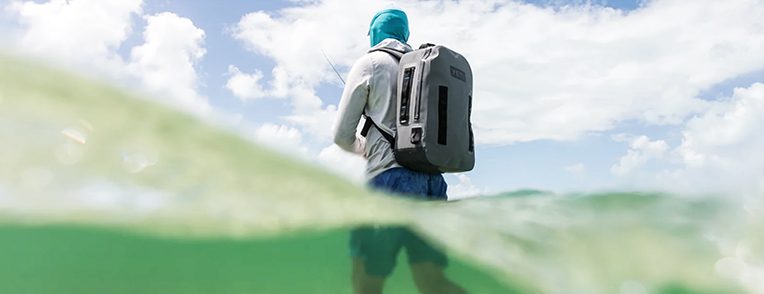
Plans For 2021
Reintjes said that for 2021, Yeti would continue to build on its “breadth and depth strategy” to marketing, including focusing engagement in the music space and leveraging its recently-formed partnership with Major League Soccer’s Austin FC.
Sustainability will also be increasingly more important around Yeti’s positioning. Said Reintjes, “To be clear, we expect ESG (Environmental, Social and Corporate Governance) to continue to be an integral part of the Yeti business brand and our overall story of durability.”
The product lineup will continue to see investments in colors and line extensions, elevated go-to-market storytelling, and category expansion in innovation.
Last year saw favorable media recognition for the Roadie 24 Hard Cooler, LoadOut GoBox and V Series Hard Cooler. For 2021, the MagSlider Lid will be standardized across its Drinkware lineup. Yeti is also in the process of transitioning many of its lids to a new material containing 50 percent post-consumer recycled content.
The coming week will see the launch of the Crossroads collection of bags, consisting of backpacks, duffel bags and wheeled luggage. The launch was postponed from 2020. Reintjes believes 2021 is a more optimal time to launch the collection given the continued focus on short excursion road tripping and the expectation of built-up demand for traditional travel and daily commutes. The collection will initially launch as DTC.
Other priorities for 2021 include improving execution in corporate sales to support the business’ strong order pipeline. Yeti.com will see continued digital analytics investments to better engage customers and further enhancements to improve its e-commerce shopping experience and support seamless customization.
At wholesale, the focus will be on replenishing supply and working with its partners on overall omnichannel efforts.
For the current year, Yeti expects:
- Sales to increase between 15 percent and 17 percent with sales growth weighted to the first half of the year;
- Operating income as a percent of sales of approximately 18.5 percent;
- Adjusted operating income as a percent of net sales of approximately 20.0 percent;
- EPS between $1.95 and $1.98, reflecting a 10 percent to 12 percent increase, with growth heavily weighted to the first and fourth quarters;
- Adjusted EPS between $2.11 and $2.14, reflecting a 13 percent to 15 percent increase, with growth heavily weighted to the first and fourth quarters; and
- Capital expenditures between $55 million and $60 million, primarily to support investments in technology and new product innovation and launches.
Photos courtesy Yeti

